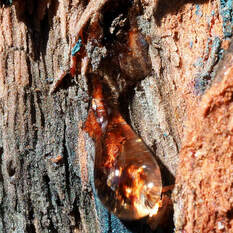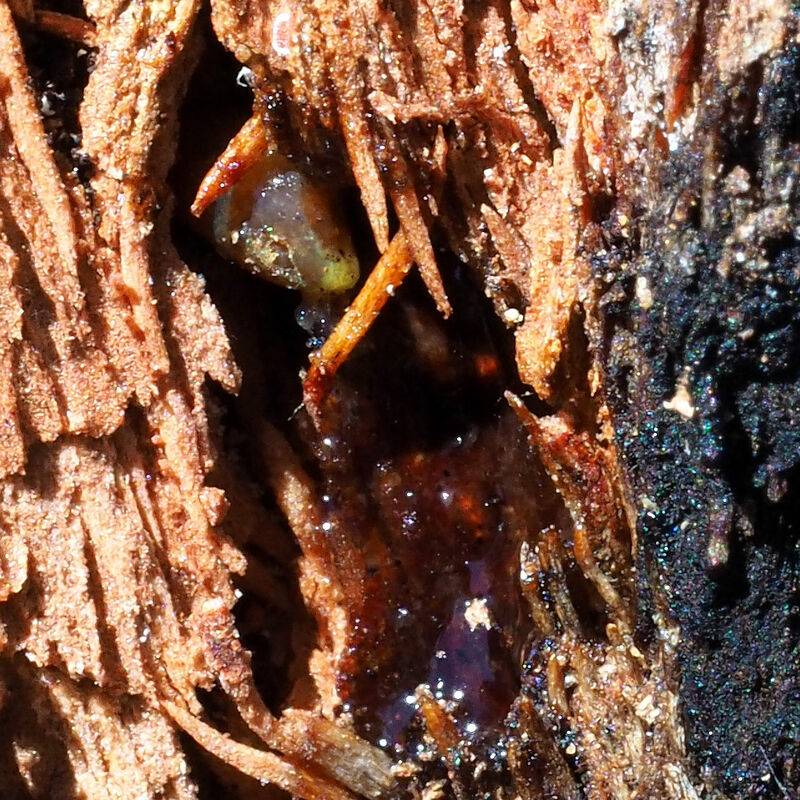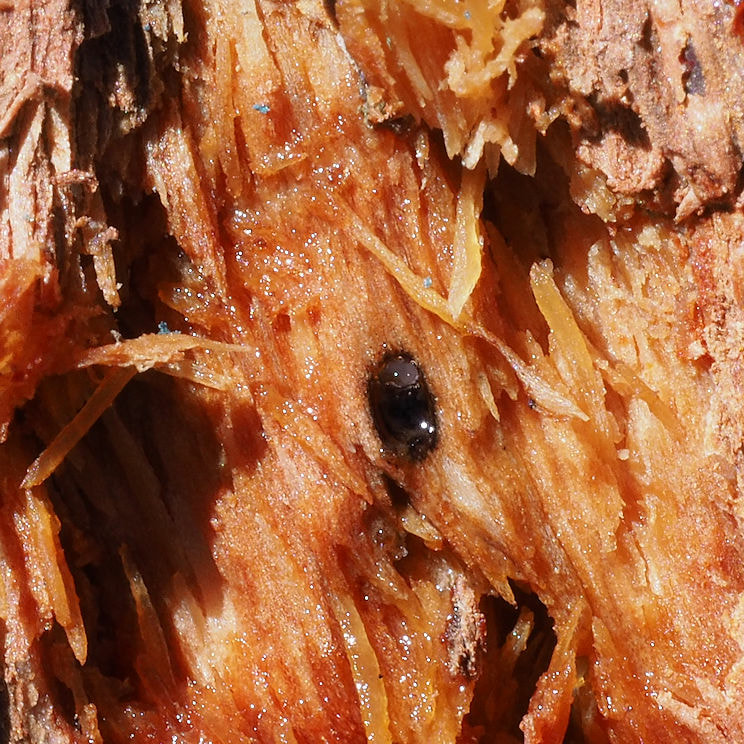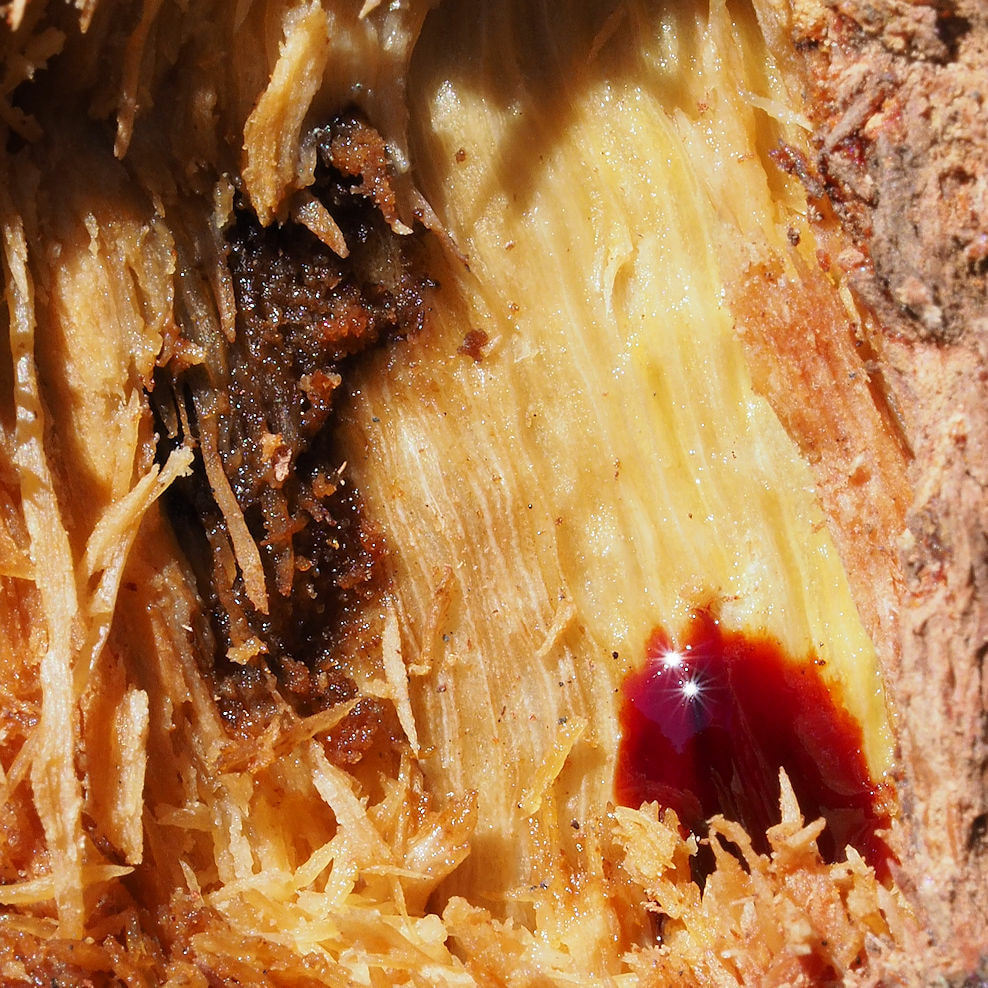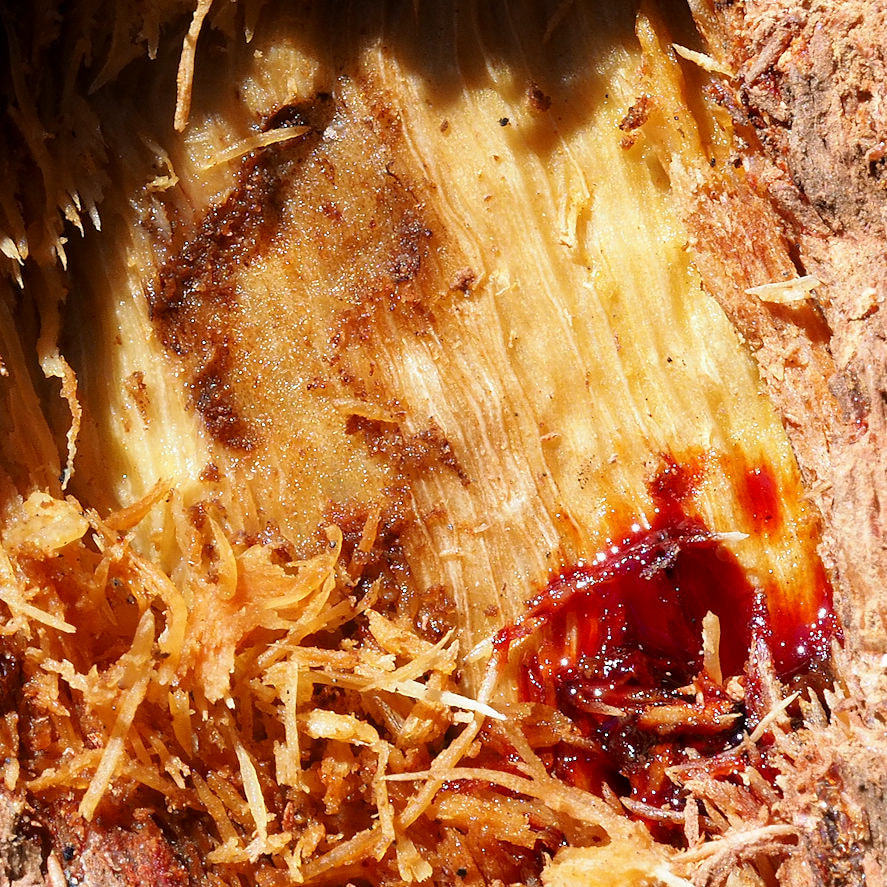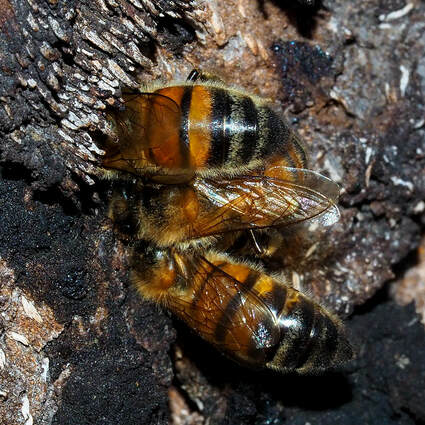 Bees clustered in crack in the bark
Bees clustered in crack in the bark Yesterday I noticed honeybees clustering around cracks in a single Marri tree. My first thought was that the bees must be pretty desperate to drink the astringent reddish kino that oozes out of marri trunks and branches (kino was used by Noongars as an antiseptic and for treating stomach disorders).
It then dawned on me that I was surrounded by marris covered in kino deposits but the bees were only on one tree trunk. The following images reveal my discoveries as I peeled away about a centimeter of layers with a pen knife.
After shooing off bees and removing an outer layer of loose dead bark, I discovered droplets of honey-coloured sweet nectar oozing out with surrounding bark stained black and bright blue in one case, by a skin fungus growing on nectar-rich bark.
(Random comment: this is why trees die when they are ringbarked).
When I mistakenly penetrated the sapwood, red kino immediately welled out and started to become gummy.
Large deposits of red kino on marris comes from damage to the underlying sapwood as described in this blog
